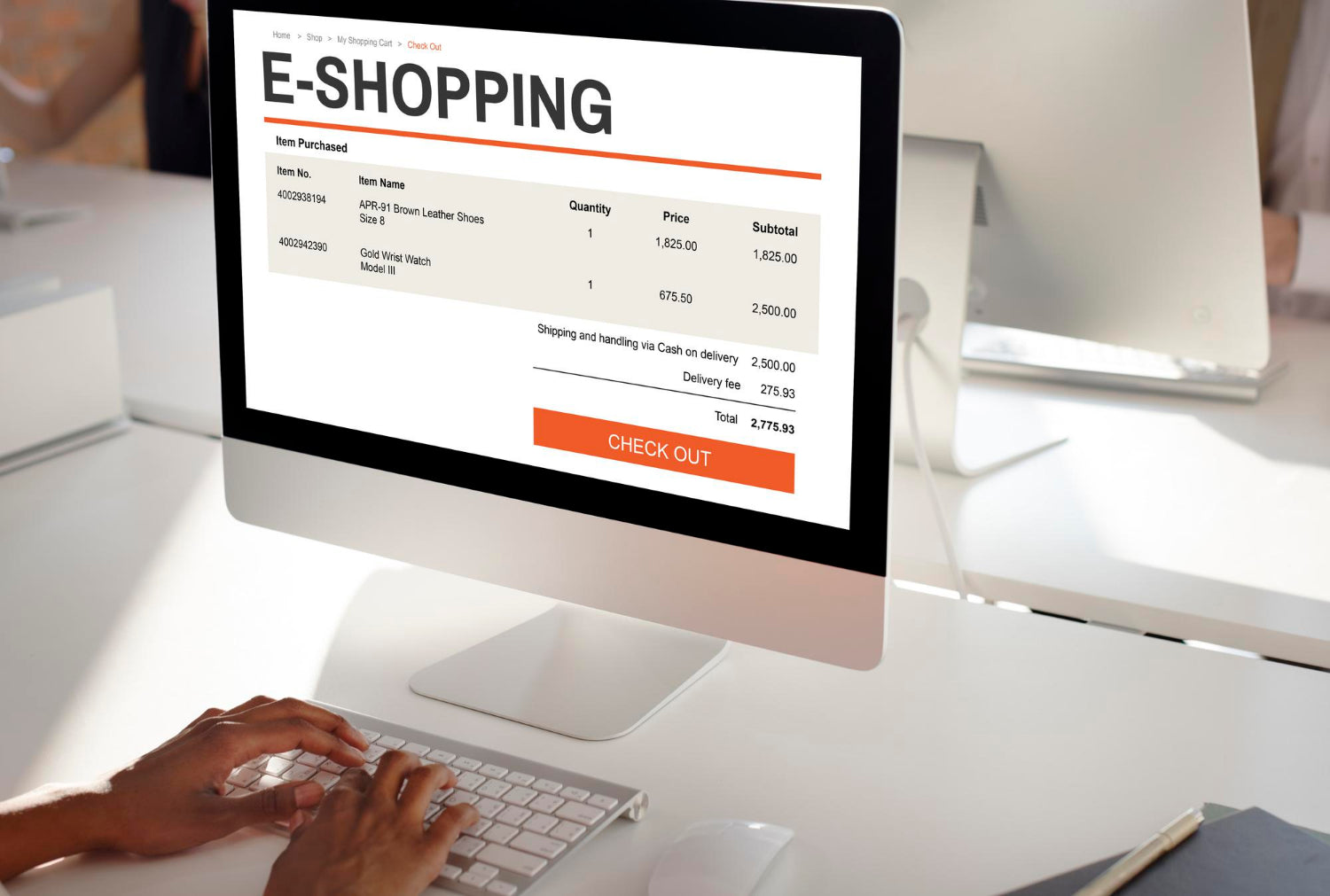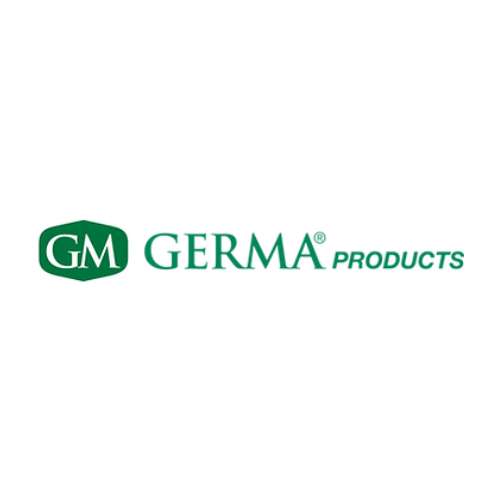
Leveraging Amazon’s Recent Invoice Requirements: What Wholesalers Need in 2025
In 2025, Amazon is tightening the reins on its marketplace with a significant update to its invoice requirements. If you're a wholesaler or seller looking to distribute products on Amazon, you’ll need to pay close attention to these changes.
With counterfeits, mislabeled products, and quality control being constant challenges, Amazon is enforcing more stringent documentation standards to protect both consumers and the integrity of its platform.
For wholesalers, this new policy may feel like a hurdle at first, but in reality, it’s an opportunity to enhance your operations and strengthen your reputation.
The invoice requirements are designed to bring more transparency to the marketplace, making it easier for customers to trust the products they buy and for sellers to prove the authenticity of their goods.
Why should this matter to you?
- Improved product authenticity: As Amazon clamps down on fake products, wholesalers who comply with the new invoice rules will be better positioned to stand out as legitimate sources of high-quality products.
- Better customer trust: Clear, detailed invoices help buyers feel confident in the authenticity of their purchases. This means fewer disputes, fewer returns, and higher customer satisfaction.
- Increased operational efficiency: While the adjustment to the new rules may require some effort upfront, once you’ve streamlined your invoicing processes, your business can run more smoothly, with fewer compliance hiccups.
For wholesalers, understanding exactly what Amazon expects from invoices is critical. But here’s the good news: This shift is manageable, and with the right approach, you can not only comply with Amazon’s new policies but use them to your advantage.
In this blog, we’ll dive into:
- The specific changes Amazon has introduced and how they affect wholesalers.
- Actionable steps to ensure your invoices meet Amazon’s updated standards.
- How wholesalers can leverage these changes to increase trust, reduce returns, and boost overall sales.
So, if you're ready to adapt and stay ahead of the curve, keep reading. Let’s explore how to make Amazon’s invoice requirements a win for your business in 2025 and beyond.
Why Amazon’s Invoice Requirements Matter to Wholesalers
As Amazon continues to grow and evolve, the marketplace is becoming more competitive and more scrutinized than ever before. In 2025, Amazon is stepping up its efforts to ensure authenticity, transparency, and quality in the products sold on its platform.
And for wholesalers, these invoice requirements are not just a technicality; they’re a crucial part of maintaining a strong presence on the world’s largest online marketplace.
Here’s why Amazon’s new invoice requirements matter so much for wholesalers:
1. Protecting Your Listings and Reputation
In the past, many wholesalers and resellers were able to skirt the edges of authenticity checks. But those days are gone. With Amazon’s new invoice requirements, product authenticity is now in the spotlight.
Sellers who can’t provide clear, legitimate invoices from approved suppliers risk having their listings removed or suspended. This can cause severe disruptions to your business, from lost revenue to potential damage to your brand’s reputation.
- For example, if Amazon suspects that a product you’re selling is counterfeit or gray market, they can ask for proof of purchase in the form of a valid invoice from a legitimate supplier. Failure to provide this proof can lead to account suspension, fines, or even legal action.
- What this means for wholesalers: You’ll need to ensure that every product you sell is accompanied by an accurate, compliant invoice. It’s no longer just about having the products; it’s about proving their authenticity.
Read Also: 10 Tips for Wholesale Inventory Management in 2025
2. Protecting Consumers and Building Trust
Amazon’s increased focus on invoices is all about consumer trust. As the e-commerce giant deals with issues related to counterfeit and substandard products, the company is stepping in to create an environment where buyers feel confident in their purchases.
Wholesalers who follow the new rules are not only protecting their businesses but also building trust with their customers. Authentic products, backed by legitimate invoices, send a message that you’re a trusted seller who values quality and transparency. Over time, this leads to:
- Fewer returns
- Lower chances of customer complaints
- Higher ratings and reviews
When a customer sees that you have the necessary documentation, it reassures them that they’re buying real, quality products.
Read Also: How Amazon Sellers Can Boost Sales Through Social Media
3. Streamlining Compliance and Preventing Future Issues
At first glance, the new invoice requirements might feel like a hassle, especially if you’re used to handling large quantities of products with minimal documentation. However, this is an opportunity to streamline your business operations.
By adopting the new guidelines early, you’ll avoid last-minute scrambling when Amazon asks for documentation or when you face an audit.
- How this benefits wholesalers: Implementing standardized invoicing processes not only ensures you comply with Amazon’s rules but also helps with internal record-keeping. It can make your supply chain more transparent, reducing the chances of mix-ups, errors, or disputes with suppliers down the road.
- Proactive vs Reactive: Wholesalers who stay ahead of these changes can leverage them as an advantage, gaining efficiency and credibility in the marketplace.
Read Also: Understanding Amazon Appeal Process: A Step-by-Step Guide
4. The Potential for Long-Term Growth
While the immediate adjustments may seem time-consuming, complying with Amazon’s invoice requirements could be a key factor in long-term growth. By maintaining clean, verifiable records and cultivating a reputation for authenticity, wholesalers set themselves up for continued success on Amazon and beyond.
Not only do you avoid disruptions, but you also build stronger relationships with your suppliers and customers.
- Opportunity for Competitive Advantage: Suppliers who consistently meet Amazon’s standards are more likely to be prioritized for larger orders, better placements, and exclusive partnerships. Compliant wholesalers become trusted partners in Amazon’s ecosystem, which can lead to better business opportunities in the future.
Takeaway: Why Amazon’s invoice requirements matter isn’t just about avoiding problems; it’s about seizing the opportunity to run a more transparent, efficient, and customer-focused business.
In an age where trust is everything, wholesalers who get it right will find themselves at a significant advantage.
Key Changes in Amazon’s Invoice Policy for 2025
Amazon’s new invoice requirements for 2025 are part of a broader effort to clean up its marketplace and ensure product authenticity. While the platform has always required documentation from sellers, the specifics have become more rigorous and detailed.
Understanding these changes is crucial for wholesalers who want to avoid listing issues and keep their business running smoothly.
Let’s take a closer look at what’s changed and how it impacts your operations.
1. More Detailed Invoice Information
Previously, invoices for listing products on Amazon could be somewhat general. Now, Amazon is requiring much more detailed documentation. Specifically, invoices must include:
- Supplier Name and Contact Info: Full business name, address, and contact details.
- Product Details: Clear product descriptions with SKU or UPC codes, product quantities, and individual pricing.
- Invoice Dates and Numbers: Properly dated invoices with unique invoice numbers to ensure traceability.
- Order Reference Numbers: Any relevant order or PO numbers linking the products to your purchase history.
For wholesalers, this means that your invoices must be more than just a summary of purchases. Amazon will scrutinize these documents to ensure all product details align with your listings. If any part of the invoice is missing or unclear, you could face delisting or account suspension.
2. Verification of Authenticity for Branded Products
Amazon is also tightening the rules around branded products. For popular beauty or electronics brands, wholesalers now need to provide clear proof of authenticity from the manufacturer or authorized distributor. If you’re selling well-known brands, your invoices need to include:
- Authorization from the brand: A direct letter or statement from the brand (or a certified distributor) confirming you’re an authorized wholesaler or reseller.
- Manufacturer’s Details: Specific details about the product’s origin, batch, and manufacturing process to show that the goods are genuine.
This new level of scrutiny is designed to eliminate gray market products and counterfeit items from Amazon’s platform. If your invoices don’t show clear proof of legitimacy, Amazon might flag your listings as potential counterfeits.
3. Automated Invoicing and Digital Compliance
In a major shift, Amazon is encouraging the use of automated invoicing systems. This means:
- Wholesalers should aim to digitally track every transaction from supplier to customer.
- Amazon is pushing for sellers to have cloud-based, automated invoicing tools in place to ensure greater accuracy and quicker updates when issues arise.
Automated systems can help streamline the process and ensure invoices are automatically compliant with Amazon’s requirements. By integrating tools that are aligned with Amazon’s standards, you can avoid manual errors that might lead to problems down the line.
Tip: If you don’t already use a system like this, now’s the time to start. Many wholesalers have already seen improved efficiency through digital invoicing platforms.
4. Proof of Wholesale Source (For Bulk Purchases)
Another important update for 2025 is the focus on bulk purchases. If you’re purchasing large quantities of products from suppliers, you’ll need to prove that the items were sourced wholesale and not through retail channels.
This change means that every invoice will need to show that:
- The products were purchased directly from the manufacturer or an authorized distributor.
- You’ve got a consistent supply chain, and your goods are intended for resale, not for personal use.
In other words, no more gray area. If you’re reselling items in bulk, you must have invoices that clearly trace the flow of products from the manufacturer to you, the wholesaler.
Read Also: How to Start Selling Wholesale on Amazon in 2025
5. Tightened Time Frames for Providing Documentation
In the past, Amazon may have been flexible with deadlines when requesting invoices from sellers. Now, however, there are specific time frames in which sellers must submit invoices upon request, particularly if Amazon suspects a listing violation.
- If you don’t respond quickly with accurate documentation, your product listings could be suspended or removed.
- Make sure your invoices are accessible and that you can quickly produce them if Amazon requires a review of your products.
The bottom line? Amazon is raising the bar for wholesalers when it comes to documentation. These new invoice requirements ensure that only legitimate suppliers and products are selling on the platform.
While this means more effort upfront, it also leads to a more trustworthy marketplace and better long-term relationships with your suppliers and customers.
How Wholesalers Can Meet Amazon’s New Invoice Standards
Meeting Amazon’s new invoice requirements might feel like a lot at first, but breaking it down into simple steps will make the process smoother. Here's how wholesalers can make sure they’re on track:
1. Get Detailed and Accurate Invoices
As mentioned, Amazon now requires much more detailed invoices. Ensure every document includes:
- Supplier information (name, address, and contact details)
- Full product descriptions (SKU, quantity, price)
- Unique invoice numbers and dates
If you’re working with a trusted distributor like UTN Wholesale, they provide clear and comprehensive invoices that meet Amazon’s standards. Always request that your suppliers include all the necessary details in their invoices to avoid delays or listing issues.
2. Ensure Proof of Authenticity for Branded Goods
If you’re selling branded products, Amazon’s stricter requirements for authenticity will likely apply. Make sure your invoices come with proof that your supplier is an authorized distributor or manufacturer.
Suppliers like UTN Wholesale often provide certificates or documentation that confirm authenticity, so don’t hesitate to ask for these if they aren’t included by default. This can save you a lot of hassle when Amazon asks for verification.
3. Embrace Digital Invoicing
The days of paper invoices are fading. By embracing digital invoicing systems, you’ll streamline your compliance process. There are numerous tools available to help you automatically generate invoices that meet Amazon’s requirements. These tools can also help you stay organized by keeping all your invoices in one place for easy access.
With UTN Wholesale, for example, you can request digital invoices that align with Amazon's policies. Having everything digital ensures you’ll always have access to the right documentation when needed.
4. Keep Your Invoices Organized
Lastly, make sure you keep your invoices well-organized and easy to find. Set up a system where you can quickly retrieve any invoice Amazon requests. You don’t want to waste time digging through old paperwork or chasing down suppliers at the last minute.
Platforms like UTN Wholesale can often send you organized, searchable invoice records that simplify this process.
By staying on top of these new invoice requirements and working with trusted suppliers like UTN Wholesale, wholesalers can not only comply with Amazon’s standards but also streamline their operations for long-term success.
Common Challenges and How to Overcome Them
Adapting to Amazon’s new invoice requirements can come with a few bumps along the way. Here’s how to tackle the most common challenges:
- Time Constraints: Sometimes, you might be asked to submit invoices quickly. The best way to handle this? Stay organized. Use digital tools to store invoices and keep everything easily accessible.
- Lack of Supplier Transparency: Not all suppliers will provide the level of detail Amazon requires. If that’s the case, reach out early and ask for what you need. Suppliers like UTN Wholesale already understand the importance of detailed invoices and will provide what you need without hesitation.
- Invoice Errors: If an invoice contains mistakes, it can lead to delays. Double-check all details before submitting, and consider using automated invoicing systems to reduce human error.
By staying ahead of these challenges and working with reliable suppliers, you can ensure a smooth transition to the new rules and avoid any disruptions to your business.
The Impact on Wholesalers in 2025: Short-Term and Long-Term
While Amazon’s updated invoice requirements may feel like a heavy lift at first, the changes will have both immediate and long-term benefits for wholesalers who adapt early.
Short-Term Impact: Operational Adjustments
In the short term, wholesalers may experience:
- Increased paperwork: You'll need to be more diligent about tracking and documenting every transaction.
- Training and system updates: You might need to implement new processes or tools to comply, which could take time.
However, these adjustments will help you stay on Amazon’s good side, avoiding potential delistings or suspensions that could hurt your sales.
Long-Term Impact: Strengthening Your Business
In the long run, the benefits are worth the initial effort:
- Improved credibility: By complying with Amazon’s requirements, you’ll build trust with customers and suppliers.
- Streamlined operations: Digital invoicing and better record-keeping systems will make your business more efficient.
- Stronger relationships: As Amazon tightens its policies, your proven reliability will set you apart from other sellers.
The wholesalers who get ahead of these changes now will be better positioned to thrive as the marketplace becomes more transparent and trust-driven.
What Wholesalers Need to Do Right Now to Stay Ahead of the Curve
.
It’s clear that Amazon’s new invoice requirements are here to stay, so the sooner you start adapting, the smoother the transition will be. But what exactly should you do now to stay ahead of the curve?
1. Audit Your Current Invoicing Process
Take a moment to review your current invoicing system. Are your invoices detailed enough? Do they include all the necessary supplier information, product descriptions, and pricing? If not, now is the time to update them. Ensuring accuracy today will save you headaches later when Amazon asks for verification.
2. Build Strong Relationships with Reliable Suppliers
Start working closely with suppliers who understand Amazon’s policies. Suppliers like UTN Wholesale already provide detailed, compliant invoices, so you won’t have to chase down paperwork when it matters most. Having the right partners ensures you’re not scrambling to get the right documentation at the last minute.
3. Implement Digital Invoicing Tools
Switch to automated or digital invoicing systems that generate clean, compliant invoices with all the necessary details. Not only will this save you time, but it also makes it much easier to stay organized and compliant in the long run.
4. Stay Proactive and Stay Ready
If Amazon requests invoices or documentation, don’t wait until the last minute. Keep your records organized and easily accessible so you can quickly respond to any requests. Proactivity is key to ensuring your listings aren’t interrupted.
How to Leverage Amazon’s Invoice Requirements to Boost Your Reputation
While Amazon’s new invoice policies might seem like just another compliance hurdle, they also present a unique opportunity to boost your reputation as a trustworthy and reliable wholesaler. Instead of seeing these changes as obstacles, think of them as tools you can use to set yourself apart in a crowded marketplace.
By meeting Amazon’s standards, you’re not only avoiding penalties but also building trust with your customers. When buyers see that you’re fully transparent and committed to providing high-quality, authentic products, it reflects well on your business.
You’ll start to stand out for all the right reasons, offering genuine products backed by solid documentation. This trust is vital for long-term success because, in the world of e-commerce, credibility can be the difference between a one-time sale and repeat business.
Complying with Amazon’s invoice requirements also positions you as a reliable partner in the supply chain. Suppliers and customers alike will appreciate your commitment to transparency, and over time, this can lead to better deals, more referrals, and a stronger standing on Amazon.
What’s more, staying ahead of Amazon’s compliance standards can give you a competitive edge. As more sellers struggle to keep up, those who are proactive about meeting Amazon’s invoice requirements will be seen as more professional and prepared.
The result? Fewer disputes, better reviews, and a more seamless experience overall.
So, while the invoice requirements may feel like a challenge at first, they’re actually a powerful way to earn and keep your customers’ trust. In a marketplace as large and competitive as Amazon, that’s a priceless asset.
Conclusion
Amazon’s new invoice requirements may seem daunting at first, but they’re a chance for wholesalers to boost trust and build a stronger reputation.
By staying ahead of the curve and ensuring your invoices are clear, accurate, and compliant, you’ll not only avoid issues but also set your business up for long-term success.
These changes are about more than just following the rules; they’re about demonstrating transparency and authenticity, which will help you stand out on Amazon.
With a proactive approach, reliable suppliers like UTN Wholesale, and the right systems in place, you’ll be ready to capitalize on these updates and keep your business thriving in 2025 and beyond.
FAQs
1. What are Amazon’s new invoice requirements for 2025?
Amazon now requires more detailed and accurate invoices, including supplier details, product descriptions, and proof of authenticity, especially for branded items.
2. How can wholesalers meet Amazon’s invoice requirements?
Wholesalers should ensure invoices are detailed, use digital invoicing tools, and work with reliable suppliers like UTN Wholesale, who provide compliant, clear documentation.
3. Can I sell branded products on Amazon without a manufacturer’s invoice?
No, Amazon now requires proof of authenticity for branded products. A manufacturer’s or authorized distributor’s invoice is essential to list these items.
4. How will Amazon’s invoice changes affect my sales?
While these changes may require some adjustments, they can help boost customer trust and reduce returns, ultimately leading to better long-term sales.
5. Is digital invoicing necessary for compliance with Amazon’s rules?
Though not mandatory, digital invoicing systems help ensure compliance and improve organization, making it easier to stay on top of Amazon’s documentation requests.




